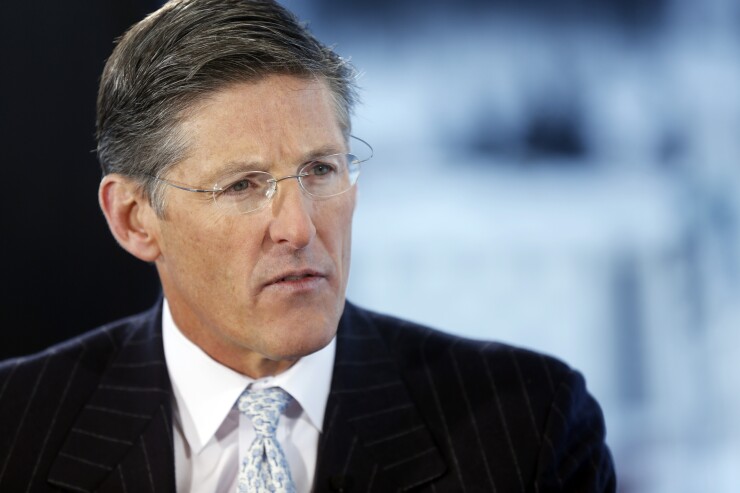Citigroup CEO Michael Corbat on Wednesday added to the chorus of bankers warning about looming credit risks in the nonbank sector.
Speaking at an event in New York, Corbat said that U.S. companies are mostly in good financial shape, thanks in large part to the corporate tax cuts, which left them flush with cash and in a better position to pay off debt. Still,
“You’ve seen more leverage going into the nonbank sector around

Asked whether the Federal Reserve should intervene and regulate nonbank lenders, Corbat — a member of the Federal Reserve’s
“While the percentage of nonbank lending has continued to grow, as we look across the system, we wouldn’t describe it as being overly systemic at this time,” Corbat said, noting that 80% of auto loans and 50% of mortgages are originated outside of the regulated banking industry.
"As that continues to grow, we need to keep an eye on it," Corbat said.
During the wide-ranging Q&A, Corbat addressed a number of macro issues facing the U.S. economy, including the decline in oil prices and the likelihood of a recession in the years ahead. Pointing to the low unemployment rate, Corbat said that consumers are in a good spot financially, and that the economy is in good shape overall.
But, he said, if there's one issue that concerns Citi in the years ahead, it’s the ability for governments, particularly those in “developed markets,” to finance their soaring debt loads.
“We don’t see that in [2019], but we also look at trying to figure out how the cycle changes or comes to an end, and our own prognostication is that it won’t be economic, “Corbat said. “It will largely be confidence driven, and it will be likely driven by a disruption in confidence around governments’ abilities to finance themselves in a reasonable way in the future."
Corbat also fielded questions about Amazon's decision to add a regional headquarters in Long Island City, Queens. In conjunction with that announcement, Citi said it would accelerate its plans to move employees out of an office tower in the neighborhood to make room for Amazon employees.
Corbat said a big reason the Seattle-based online retailer is adding jobs in New York is that young professionals simply prefer to live in urban areas.
“It says something that we all know — that, in particular, young people want to be in cities,” he said.
Additionally, Corbat addressed Citi’s decision earlier this year to scale back its work with gun sellers. The company
Corbat — who described himself as a gun owner and a hunter — said recent mass shootings have had a direct impact on Citi employees.
“A lot of what pushed us there is in almost every event … we had a Citi employee or Citi family member directly affected,“ Corbat said.
Corbat also acknowledged that Citi
“I would say we got the response that we largely expected,” he said.





